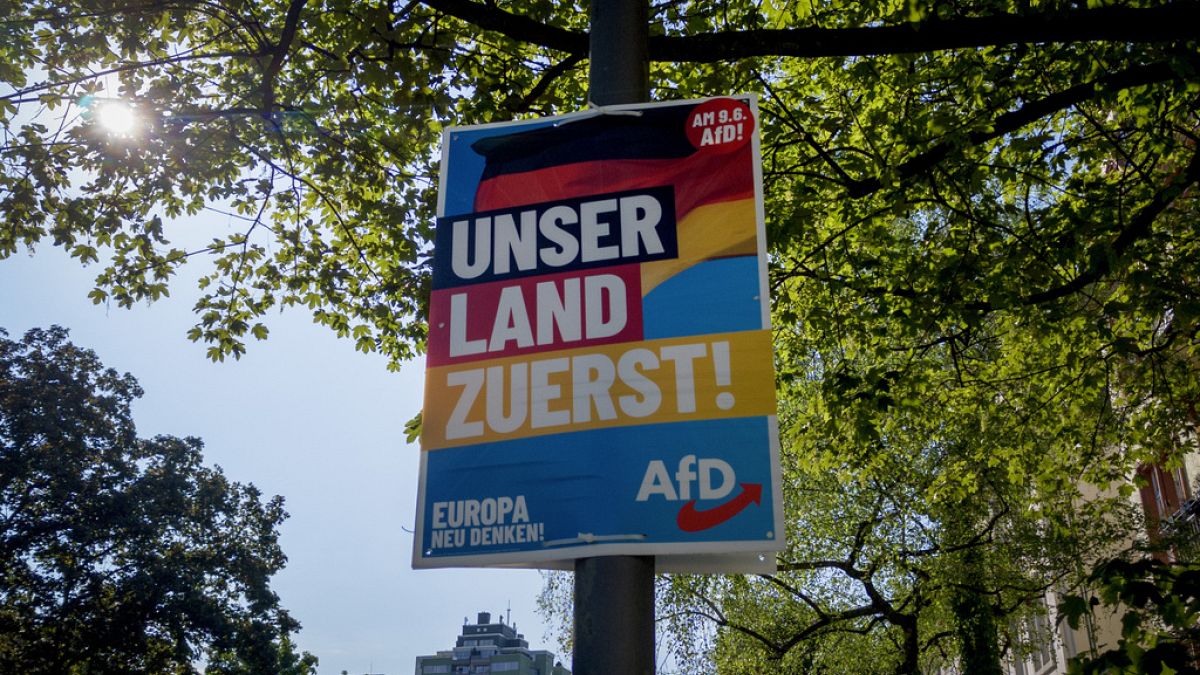The German far-right party AfD made a strong showing in the European elections, but has also faced legal challenges due to its alleged ties to the extreme right. The director of the Buchenwald concentration camp memorial, Jens-Christian Wagner, has warned that the party poses a serious threat to German democracy. He called for a ban on the party, citing its use of Nazi terminology and practices. Wagner emphasized the importance of preventing anti-constitutional parties like the AfD from using democratic means to undermine democracy itself.
Despite finishing second in the European Parliament elections, the AfD has faced criticism and legal repercussions over its association with far-right ideologies. Regional leader Björn Höcke was fined for using a Nazi slogan, and a court upheld the party’s designation as a “suspected extremist organisation”. The party was also expelled from its European Parliament group after a former candidate made controversial statements regarding Hitler’s SS. Campaigners have called for an AfD ban in order to prevent the party from further influencing state policy and eroding democratic values.
The rise of the AfD has raised concerns among its opponents about the potential for a shift towards authoritarianism in Germany. Critics see the party as a threat to human dignity and democratic norms, drawing parallels to the Weimar Republic’s failure to stop the Nazis from coming to power. The AfD’s success in the European elections has only exacerbated these fears, leading to calls for decisive action to prevent the party from gaining further influence. The urgency of the situation has prompted campaigners like Julia Dück to push for an AfD ban procedure to be implemented swiftly.
The parallels between the AfD and historical National Socialism have sparked a debate over the party’s place in German politics. Wagner’s warning about the dangers of allowing the AfD to continue operating echoes concerns about the potential consequences of not taking action against extremist groups. The AfD’s use of Nazi terminology and ideological practices has served as a stark reminder of the need to safeguard democracy against anti-constitutional forces. The strength of the party in the European elections has highlighted the urgency of addressing these issues before they have a further impact on German society.
The legal setbacks faced by the AfD in response to its alleged links to the extreme right have added to the growing calls for action against the party. The fine imposed on Björn Höcke for using a Nazi slogan, the court’s decision to designate the party as a “suspected extremist organisation,” and its expulsion from the European Parliament group point to a broader recognition of the threats posed by the AfD. Campaigners like Dück argue that these measures are not enough to address the root causes of the party’s extremism, underscoring the need for a more comprehensive approach to tackling far-right ideologies in German politics.
The current debate over the AfD’s role in German democracy reflects broader concerns about the rise of authoritarianism in Europe. The party’s success in the European elections, coupled with its alleged ties to the extreme right, has heightened fears about the erosion of democratic values in Germany. The urgency of the situation has prompted calls for decisive action to prevent the AfD from further influencing state policy and undermining fundamental rights. The future of German democracy may depend on the outcome of this struggle against forces seeking to subvert its core principles.











